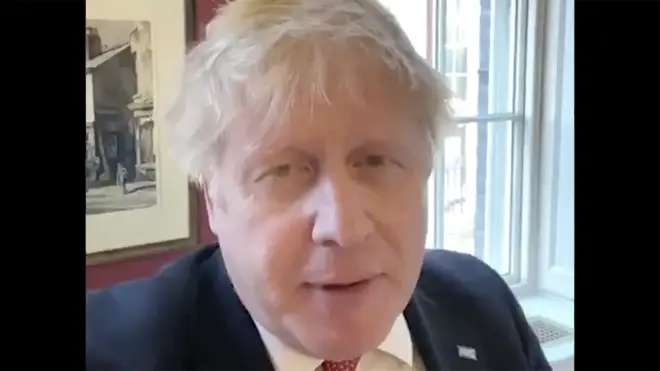
Ben Kentish 10pm - 1am
30 March 2020, 08:12

Boris Johnson has said the UK will get through the coronavirus crisis "together" after Brits were warned the national lockdown may last for at least six months.
Mr Johnson praised the 750,000 volunteers who have offered to assist the NHS, from within Downing Street where he is isolating having tested positive for Covid-19.
READ MORE: the latest coronavirus updates LIVE
Deputy chief medical officer for England Dr Jenny Harries said the nation will not be in "complete lockdown" for half a year but said social distancing measures will be lifted gradually - which could take as long as six months.
But there are still reports emerging of Brits flouting the lockdown, including one group who decided to have a large karaoke party, people playing football, and MP Stephen Kinnock visiting his father for his birthday.
Thanks to everyone who has been staying at home.
— Boris Johnson #StayHomeSaveLives (@BorisJohnson) March 29, 2020
By delaying the spread of the disease we can reduce the pressure on our NHS, and that's how we hope to save many thousands of lives.#StayHomeSaveLives pic.twitter.com/kxdqItMYSE
Her warning at Sunday's coronavirus press conference came as the NHS announced the first confirmed death of a frontline hospital worker with Covid-19.
Cabinet minister Robert Jenrick said "we simply cannot and should not" ask health workers to go to the frontline without adequate protective equipment, as he announced the nation was put on an "emergency footing" in an "unprecedented step in peace time".
Dr Harries said the three-week reviews on the measures to slow the disease's spread are likely to continue for six months and their success would be judged on slowing its rate.
A sudden lifting, she said, could see the nation's sacrifices "wasted" with another spike in deaths, which have reached 1,228.
"We need to keep that lid on and then gradually we will be able to hopefully adjust some of the social distancing measures and gradually get us all back to normal," she said.
"Three weeks for review, two or three months to see if we've really squashed it, but three to six months, ideally, but lots of uncertainty in that but then to see at which point we can actually get back to normal and it is plausible it could go further than that."
In a video message from within his flat above No 11, the PM praised 20,000 former NHS staff who have returned to the service to tackle the pandemic.
And he chose to contradict the "there is no such thing as society" endorsement of pure individualism from his Conservative predecessor Margaret Thatcher.
"We are going to do it, we are going to do it together. One thing I think the coronavirus crisis has already proved is that there really is such a thing as society," Mr Johnson said.
Communities Secretary Mr Jenrick announced that the emergency footing was now raised in all parts of the country.
"This is an unprecedented step in peace time, we haven't done anything like this since the Second World War," he said.
"This means that we are establishing strategic coordination centres across the whole country."
Each would be led by gold commanders and have members of the armed forces embedded in them, he explained.
Moments before the briefing, the NHS announced the death of 55-year-old consultant Amged El-Hawrani amid concerns staff do not have sufficient personal protective equipment (PPE)
The dedicated ear, nose and throat surgeon at Queen's Hospital Burton died on Saturday. It was understood he had not been in contact with patients in recent weeks.
Mr Jenrick said all NHS trusts and healthcare settings had received PPE deliveries and all social care sites will have received packages shortly.
"We simply cannot and should not ask people to be on the frontline without the right protective equipment," he said.
Mr El-Hawrani's death came as the toll in UK hospitals reached 1,228, a rise of 209.
This was the second biggest day-on-day jump but it was smaller than the 260 increase reported the day before.
But experts warned it was too early to claim the rate was decreasing and Dr Harries said she expected the coronavirus death toll to increase "for the next week or two".
Oxford University Professor James Naismith said: "It is far too early to conclude that the lower number today than yesterday is not simply due to chance."